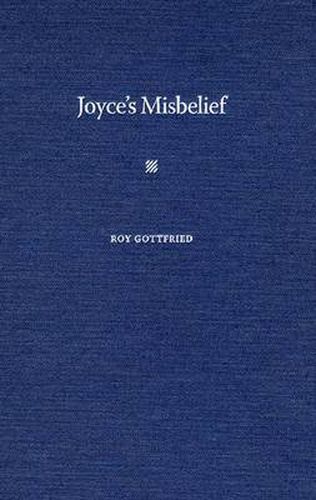Readings Newsletter
Become a Readings Member to make your shopping experience even easier.
Sign in or sign up for free!
You’re not far away from qualifying for FREE standard shipping within Australia
You’ve qualified for FREE standard shipping within Australia
The cart is loading…






Roy Gottfried takes a different and somewhat controversial approach to the study of James Joyce’s relation to religion by examining the author’s misbelief rather than the disbelief so many scholars claim he professed.Gottfried argues that Joyce in fact had a great deal of respect for the Catholic Church though he did not accept the orthodox dogma he learned as a youth. Instead, Joyce was most interested in actual schisms that challenged the authority and universality of Catholic dogma.This focus on schism is most readily evident in Gottfried’s analysis of Joyce’s use of key Christian, though not Catholic, texts. He explores Joyce’s interest in the Eastern Orthodox Church and in Protestantism, two influences usually ignored in discussions of Joyce and religion. Gottfried offers new readings of Joyce’s work including his puzzling use of the term
epicleti
to describe Dubliners and his interest in heterodox ideas in Ulysses and Finnegans Wake. Joyce’s use of the
Protestant Bible
and the
Anglican Book of Common Prayer
enabled Joyce to articulate ideas that the Catholic Church of his time suppressed and to challenge Catholic doctrine, power, and hegemony, according to Gottfried.
$9.00 standard shipping within Australia
FREE standard shipping within Australia for orders over $100.00
Express & International shipping calculated at checkout
Roy Gottfried takes a different and somewhat controversial approach to the study of James Joyce’s relation to religion by examining the author’s misbelief rather than the disbelief so many scholars claim he professed.Gottfried argues that Joyce in fact had a great deal of respect for the Catholic Church though he did not accept the orthodox dogma he learned as a youth. Instead, Joyce was most interested in actual schisms that challenged the authority and universality of Catholic dogma.This focus on schism is most readily evident in Gottfried’s analysis of Joyce’s use of key Christian, though not Catholic, texts. He explores Joyce’s interest in the Eastern Orthodox Church and in Protestantism, two influences usually ignored in discussions of Joyce and religion. Gottfried offers new readings of Joyce’s work including his puzzling use of the term
epicleti
to describe Dubliners and his interest in heterodox ideas in Ulysses and Finnegans Wake. Joyce’s use of the
Protestant Bible
and the
Anglican Book of Common Prayer
enabled Joyce to articulate ideas that the Catholic Church of his time suppressed and to challenge Catholic doctrine, power, and hegemony, according to Gottfried.